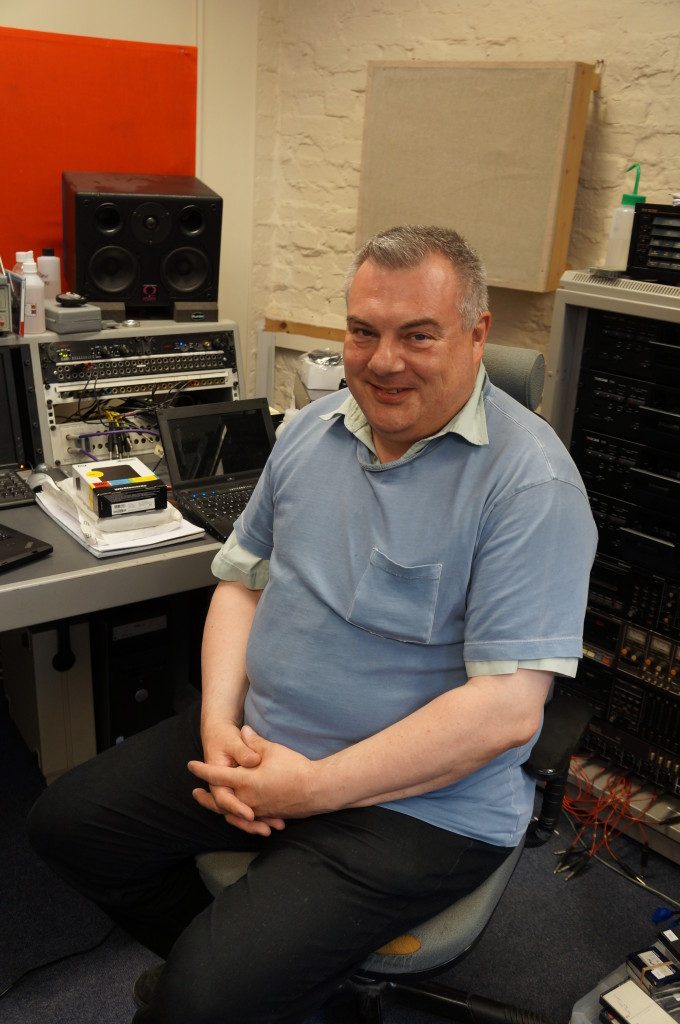This week in the Greatbear Studio we are being visited by Michael Wright, Director of The Archive Trust for Research in Mathematical Sciences and Philosophy.
The Archive Trust for Research in Mathematical Sciences and Philosophy holds an extensive collection of audio and video recordings on subjects in mathematics, physics and philosophy, particularly the philosophy and foundations of mathematics and the exact sciences recorded since the early 1970s.
The website explains further the rationale for collecting the recordings:
Such recordings allow historians of science and mathematics to form a better appreciation of the background to the emergence of new ideas; and also of the complex pattern formed by “roads not taken” – ideas which for whatever reason were laid aside, or apparently subsumed in other developments. Those ideas may later re-emerge in ways yielding a new perspective on those developments. Such a rich archive of primary oral source material naturally aids historical study of the Sciences and the conceptual and philosophical questions to which they give rise.
The project started in 1973 when Michael recorded lectures, seminars and courses relating to Maths and Philosophy when he was a doctoral student. The early recordings were made in Oxford, London and Cambridge and were done on an enthusiastic, if amateur basis. In the 1980s and 1990s the recording process became more systematic, and more video recordings were taken. The archive is still collecting material, and Michael often travels to conferences and lectures to record contemporary debates in the field, as he is this week when he travels to Warsaw for Samuel Eilenberg Centenary conference (there are recordings of Eilenberg’s lectures and an interview collected in the archive).

What started as a hobby for Michael has now become a full time commitment. The archive contains a staggering 37,000 recordings, those he made and ones solicited from other individuals. They include recordings of figures such as Imre Lakatos, Ilya Prigogine, contemporary philosopher Alain Badiou and many more.
The majority of recordings from 1973-2003 were recorded on audio cassette format, although some were done on reel-to-reel recorders. Many of these recordings remain on analogue tape, and the biggest challenge for the archive is now to find the funds to migrate several thousand hours of recordings to digital format.
The archive also track downs and publishes existing material that may be collected in other archives, or are stored in people’s personal collections. For Michael the biggest revelation in constructing the archive was finding out about the amount of material people have that are sitting in the back of their cupboards. This is either because people have forgotten they exist, or because they simply do not known what to do with them.
The archive became a charitable trust in 2008 and names among its trustees English mathematical physicist and philosopher Sir Roger Penrose, and Martin Rees, former Master of Trinity College and Emeritus Professor of Cosmology at the University of Cambridge and President of the Royal Society.
Its an exciting, and transitional, time for the archive as it plans to take its next steps. In the coming years there are plans to develop the website through uploading ‘born digital’ information, attain funds for wholesale digitisation of tape and paper resources and continue to collect recordings. This ambitious project is well on its way to becoming a vital and unique contribution to the subject, and will interest many other people who are simply curious about these rich and complex topics.

